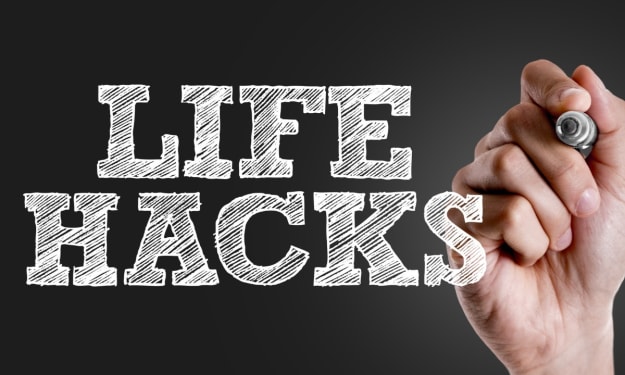
Giving your brain food
1. Extensively reading
Knowing enough about the world to comprehend how things work is a necessary component of creativity. Additionally, as you gain knowledge, you'll be able to incorporate more viewpoints into your own and connect ideas in ways that you previously might not have been able to. One of the best ways to increase your knowledge and broaden your perspective is through reading.
Embrace variety. Read about a wide variety of topics. This will enable you to apply your knowledge across fields and disciplines when it's time to put your knowledge and creativity to the test. Read with imagination. Don't limit your attention to textbooks or scholarly monographs. Spend some time reading science fiction, fantasy, or another genre that will broaden your perception of what is possible.
Read about topics you don't understand. form the habit of reading. Do not fall into the trap of making yourself read a book every week or month. Find books and other reading materials that you like instead, and scatter them around the house. Take advantage of free time and downtime to delve into these knowledge realms.
2. Work together with others
especially if you get along well with others. You can sometimes advance an idea that has been sitting in your head for a little while simply by talking through a problem or brainstorming with another person. In this case, seek out someone who is familiar with the type of issue or problem you're trying to solve; they may have a unique perspective that will help you find a unique solution.
3. Talk to others
Engage fresh and diverse perspectives on any given occasion to broaden your perspective. There are fascinating and unique people all around us. They may have a surprising impact on your creative instinct. Utilize occasions like parties, meetings, and community activities.
4. Stay away from activities that only confirm what you already know or believe or that don't challenge you.
Many people establish routines and devote a lot of time to the same pursuits that they have always pursued. These pursuits rarely advance your personal development and don't really push you to think creatively. Consider cutting down on your time spent on the following:
- watching television, particularly shows you regularly watch.
- playing games or exercising that you already know how to do. If you are a master at chess or checkers and consistently beat the computer or your friends, it's likely that those games aren't aiding in your development. Take a look at various sports or games.
- engaging in social activities that stifle your creative impulses or mingling with boring people.
5. Go places that inspire you creatively.
We occasionally require stimuli to fuel our own creative urges. Such stimuli can be obtained in a variety of ways, all of which are likely to be enjoyable, captivating, and interesting. Consider:
festivals, art fairs, or galleries. You'll encounter many things that you don't typically encounter, which might inspire you to consider novel ideas.
- Attend musical events like concerts or symphonies.
- Visit a museum, see an opera or play, or both.
- Attend a public speech, presentation, or lecture.
6. Spend time in the outdoors.
The strength and beauty of nature can aid anyone in taking a step back and seeing the big picture, whether it be through a walk on the beach or a ride down the closest street lined with trees. You might be able to see connections that you hadn't noticed before when you're feeling upbeat.

Educating the mind
1. Accept your mistakes.
Failure is an essential component of the creative and educational processes. Accept it for what it is, and make a commitment to yourself to learn from your mistakes and failures. By doing this, you'll develop the ability to view every setback as a chance for innovation and improvement rather than a roadblock to your success.
You can have creativity whether you want it or not. It's a talent that can be enhanced and a muscle that must be exercised. Failures are thus a necessary component of the process of developing and strengthening.
2. Create a mind map to aid in the visualization of your thoughts.
Sometimes we have thoughts that seem to disappear before we write them down. Many of our thoughts seem disconnected and haphazard. Try out mind mapping on some paper. You might be better able to comprehend your ideas and their relationships now that you can see them.
- List your apparently random thoughts.
- Choose a few of your most intriguing concepts and jot them down on a piece of paper in various locations. Put them in the order that you believe they should be connected.
- Connect ideas by drawing lines.
- Connect significant ideas with less significant ideas by drawing dotted lines along them.
3. Set aside some time to yourself so that you can reflect.
Your horizons will widen if you take some time to think about the world or to reflect on things. You can think about issues you've been attempting to solve and come up with fresh ideas you may not have had before when you're alone.
4. Make a commitment to maintaining an open mind.
Being open-minded will help you consider issues that you might not have previously considered. Additionally, you'll be able to experiment with concepts and methods that previously made you uneasy.
- Accepting the idea that there are frequently multiple approaches to a problem or an objective is one aspect of this.
- Recognize that there are various perspectives on the world. The variety of approaches to problem-solving and creativity becomes apparent.
- Recognize that you don't know everything and that every experience is a learning opportunity.
- Think about unconventional or even "weird" perspectives or approaches to issues. These outlandish opinions or ideas might inspire you in a creative way.
5. Create new things using your hands and/or your mind.
The best method for developing your creativity is to actually start creating. You can do a variety of things to train your brain in this way, including:
- Drawing. Draw if you find it enjoyable. Even if you believe you are good at it, it really doesn't matter.
- Writing. Write if you enjoy doing so. The best way to refine and develop your ideas and creative impulse is to actually write (fiction or nonfiction).
- Build. You should build if you enjoy building things, whether it's abstract art or simple furniture. Your imagination will be inspired by this, and you just might build something amazing!
- Practice any creative talent you may have, whether it be designing your bedroom, creating food, or learning calligraphy.
6. Reframe difficulties.
Try to step outside of your comfort zone and the confines of the "box" you usually operate in. Consider various approaches to a problem you are attempting to solve. Accept different viewpoints, and perhaps try to see the issue as an opportunity. For instance:
- Consider the fence's intended use if building one is your goal. Then concentrate on the goals you have for constructing the fence. Consider other options, such as spraying your prized flowers with organic soap to deter deer, if you're trying to prevent them from eating your prized flowers.
- If you want to find a solution, try to approach the issue of car fuel efficiency more from the standpoint of transportation. You can scale down the size of a car or even find alternative modes of transportation for people rather than just attempting to create an engine that is more fuel-efficient.
- If you believe an avenue of research or a project you've been working on has failed, don't be afraid to start over. Restart and rethink everything.
7. Distinguish between productivity and creativity.
Always keep in mind the distinction between creativity and productivity. You simply need to determine for yourself when you need to be productive or creative, or both.
- Even if someone isn't creative in the least, they can still be very productive.
- Finding fresh approaches to problems and making or creating original things are both aspects of creativity.
- Producing something is a requirement of productivity, but this can frequently be done in a mechanical and unimaginative manner.
Creating Space and Time for Creativity
1. Allow yourself time to reflect.
This is something you can do both before and during work. You can only benefit from dedicated "think-time," especially if you're struggling to come up with original solutions to complex issues.
- Before you begin working, give yourself some time to reflect.
- Throughout, take a break to reflect on what you're doing.
- Take a moment to reflect on any unexpected challenges you may encounter. You might come up with a solution that you hadn't previously considered.
- Even if you have no idea what you'll do during this specifically designated creative time, that's okay. It's crucial to just be and to wait for inspiration to strike when it does.
2. Work when it's convenient for you.
According to studies, the best times for people's cognitive function differ. Find out when you think most clearly, then try to work and be creative then. According to other studies, some people are most creative when they are, traditionally speaking, least productive. Try different things to see when you're most inventive and creative. Everybody's experience with this is unique.
3. Create an environment at work that encourages creativity.
The most organized and structured environments frequently don't foster creativity. Try to cultivate a space that encourages your own creativity.
- Display illustrations or posters that reflect the creative impulse.
- Put a couch in your office to create an unconventional workspace.
- While working, get up and about. Some individuals prefer to stand while working at a desk. Some people read, write, or think while slowly moving along a treadmill.
4. Spend time being creative, but avoid attempting to "plan" your time.
Although you may occasionally have brilliant ideas while working on something else, you should probably set aside some time to brainstorm and refine your ideas.
- If this works for you, take a half-hour before bed to reflect on things.
- Spend a little of your lunchtime thinking about issues.
- If you can, stop what you're doing when your creative "juices" start to flow and work through those ideas.
5. Avoid routine and structure at all costs.
Although structure and routine are very beneficial and can increase productivity, if they take over your life, they may also stifle creativity. In order to foster your own creativity, reserve structure and routine for times when productivity is absolutely necessary. At other times, allow yourself to be less structured.
6. When it comes to creative constraints, enjoy them.
Time and material restrictions can encourage innovative approaches to problems. Enjoy the fact that your options for solving problems or producing are constrained by time or resources. Consider additional approaches to achieving your objective that could help you save time or resources.
I believe thriftiness drives innovation, just like other constraints do, according to Jeff Bezos. "Inventing your way out is one of the only ways to get out of a tight box."
About the Creator
G Fraust
Hi, I'm G, a writer and adventurer with a passion for exploring the world and experiencing all that it has to offer. With a love for travel and a desire for freedom, I seek out new adventures and challenges wherever I go.






Comments
There are no comments for this story
Be the first to respond and start the conversation.